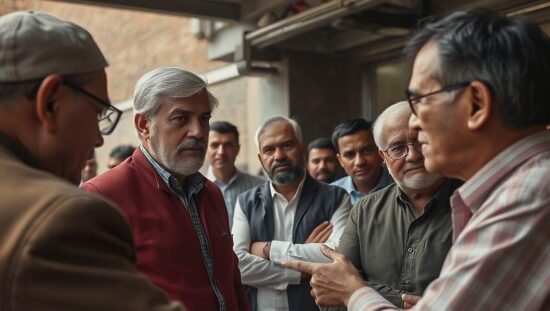A significant rift has emerged within the German Christian Democratic Union (CDU) over the stance of Foreign Minister Johann Wadephul regarding the potential return of Syrian refugees to their homeland. Wadephul’s recent remarks in Damascus, questioning the feasibility of widespread returns due to infrastructural damage, have drawn sharp criticism from within his own party, exposing tensions surrounding Germany’s repatriation policy and its wider approach to Syrian reconstruction.
Günter Krings, CDU parliamentary group deputy leader, has publicly contradicted Wadephul’s assessment, arguing that the Foreign Minister’s statements were taken out of context. He asserted that the Syrian civil war is effectively over and that returns are now “possible and reasonable” for the vast majority of Syrian refugees who previously migrated to Germany. Krings emphasized the paradoxical nature of using infrastructural devastation as justification against repatriation, posing the pointed question: “Who will rebuild a destroyed country if not its own citizens?” He stated a priority should be placed on returning convicted criminals and those legally obligated to leave Germany, aligned with the Syrian government.
The criticism extends further, with Sven Schulze, CDU state chairman of Saxony-Anhalt and member of the CDU executive board, also expressing disagreement. Schulze maintained that the very premise for Syrian refugees’ flight – the ongoing civil war – has now subsided, necessitating a proactive strategy for return. He deemed infrastructural challenges and perceived inferior living conditions in Syria inadequate reasons to obstruct this process.
While the Chancellery attempts to downplay the internal disagreement, describing the situation as a “sham conflict”, the public rebukes of Wadephul’s position raise questions about the government’s consistent policy. Regierungssprecher Stefan Kornelius defended the Foreign Minister’s actions, pointing to the government’s efforts to stabilize Syria as a prerequisite for refugee returns and highlighting the invitation extended to Syrian interim President Ahmed Al Scharaa to visit Berlin, reportedly at the Chancellor’s behest. However, the fact that Wadephul specifically referenced the deportation of “very few cases of truly serious criminals” during his visit to Damascus complicates this narrative.
The Foreign Office itself conceded that returns to Syria are indeed necessary, despite Wadephul’s later emphasis on limited exceptions. While acknowledging that voluntary returns depend on factors such as safety, economic conditions and housing availability – points Wadephul also highlighted in Damascus – the underlying issue remains the degree of realism and responsibility in Germany’s approach to its significant Syrian refugee population. The internal debate underscores a broader ideological clash within the CDU concerning the balance between humanitarian obligations and national interests, particularly in the context of an evolving political landscape in Syria.





